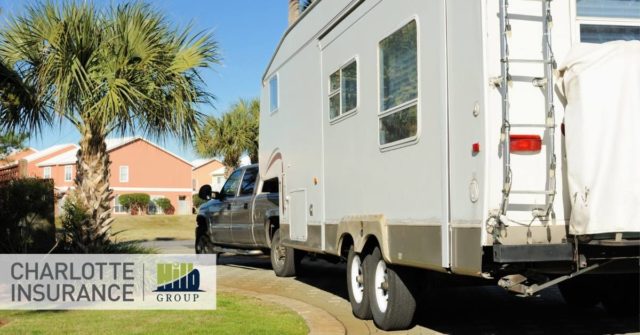Getting the new toy, like an RV or boat, was a dream come true! Using it affords a life of freedom and fun. But now you need to get your new toy from point A to point B which means you’ll need to tow it.
Here’s what you know before you hitch up and hit the road.
Getting Your Vehicle and Hitch Ready to Tow
If you follow the requirements of your vehicle and hitch, and take a few precautions before you leave, you’re likely to have a safer experience and avoid expensive accidents.
Know Your Towing Capacity
First, you need to know how much weight your vehicle can actually tow. It needs to be capable of handling the weight of whatever is in your vehicle, passengers, luggage, etc., as well what you’re towing – whether that’s your RV, boat, or something else on a trailer.
Driving with too much weight is dangerous. Your brakes won’t work as effectively, and you can potentially damage your vehicle.
Hitch Up Properly
Your hitch is the connector between your vehicle and whatever you tow. It must be the correct one for your vehicle, and it must be able to handle the weight of what you tow.
To prevent trailer sway, consider using a hitch stabilization device as well. This can help prevent problems on the road, like your boat or RV swinging like a pendulum. (Another way to prevent trailer sway is to drive more slowly and cautiously.)
Finally, to protect your precious cargo, consider a hitch lock to make sure your trailer hitch stays secure and a coupler lock to guard against coupler theft.
Check Your Tires, Brakes, and Lights
For your tires, check both your vehicle and your boat or RV. Make sure they’re properly inflated. Tires that are too low make your towing vehicle work harder and require more fuel. Your tires might also blow out while you’re on the road which is an unnecessary repair and delay that may also lead to an accident.
Too many drivers neglect connecting the lights from the towed vehicle to the vehicle they drive. Connected lights make what you’re towing more visible and prevent accidents. Don’t rely on your vehicle’s brake lights and turn signal to warn other drivers. Make sure what you’re towing has working lights at the back.
Brakes aren’t usually needed for light, small trailers, but heavy tows need them. They may be hydraulic or electric, but make sure to connect the emergency “breakaway” cable no matter what kind they are. If your RV or boat disconnects from the hitch, this allows it to come to a stop sooner and (hopefully) more safely.
Driving While Towing
Towing an RV or boat down the road changes the driving experience. Make sure you stay safe to avoid accidents. Keep these tips in mind.
You Need More Stopping Distance
With the extra weight on your vehicle, you won’t be able to stop as quickly as usual. Keep more distance than usual between you and other vehicles so you have the room you need to stop safely.
Pay Attention on the Road
It’s always good practice to look ahead beyond a car or two on the road. When you’re towing, this is imperative. This will help you anticipate problems and slow down early enough to avoid an accident. Remember, it takes longer to speed up, slow down, change lanes, and turn while towing.
Be Careful
Everything is more difficult when you tow, so be careful.
- Your blind spots are much bigger than you’re used to. Give yourself more space and time to change lanes.
- Allow for more time and distance before passing, and avoid passing anyone on a two-lane road.
- Stop gradually and tap your brakes sooner than you’re used to.
- Try not to accelerate too hard or too much to prevent unnecessary wear and tear on your towing vehicle.
Check Your Insurance
The final thing to know before you tow is what your insurance covers. Your auto insurance may not cover everything, depending on your policy. Give us a call at Charlotte Insurance and we’ll let you know what’s protected and what’s not, plus we can give you a free quote on auto, RV, or boat insurance.

